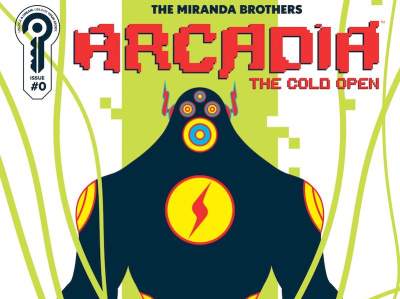Rolling for Initiative is a weekly column by Scott Thorne, PhD, owner of Castle Perilous Games & Books in Carbondale, Illinois and instructor in marketing at Southeast Missouri State University. This week, Thorne continues his look at the consumer decision making process and how it affects inventory.
Last week, I discussed how you, me, and everyone else makes decisions and mentioned that businesses have some additional criteria they take into consideration when making their decisions, especially regarding what to stock and what events to run and promote (see “Rolling for Initiative--I Want to Buy A Game. How Do I Decide Which One?”). Primary among these criteria is that of “derived demand.”
Stores almost never buy games because the owner wants them (except in those cases where the store owner opens the store because of their love of the game, as is the case with a lot of card shops.) Stores stock games because there is customer demand for them, ergo store “demand” for games is “derived” from customer demand for them, hence derived demand.
Derived demand is the concept that business make purchases because of demand for a product or service that is caused by another source. In its basic form, stores buy merchandise for resale that they believe their customers want to purchase. This is why one store stocks Warmachine while another carries Flames of War, while one store has a fantastic selection of independent graphic novels, and another has almost none.
Stores purchase products based on what their customers tell them they want by what they purchase.
Case in point, Cardfight!! Vanguard. A number of stores in the St. Louis area do well with it. We do not. I think we have sold one pack in the past two months. Every once in a while we get someone who asks for tournaments and we tell them that we will happily host them when sales show there is a demand for them. So far, demand has not justified any more support for the game. We would like to run tournaments for it and Force of Will and Dragon Ball Z and Arkham Horror and Flames of War, etc. but the sales for them just don't justify us putting in the effort.
Derived demand is one of the problems that led to Hastings’ bankruptcy. As I understand it, headquarters ordered much of the product for the individual stores and did not take into consideration individual demand for pop culture products, especially POP figures and comics, by customers at the stores. Sales of those products need very close monitoring or else a store can develop a bad case of inventory creep, with product sitting on the shelf instead of turning into cash. A wall of POP figures looks impressive but each one represents money tied up in inventory instead of in the bank account.
Derived demand is also the driving force determining whether a store offers a large number of tables for gaming, with amenities such as timers, play mats and store-provided terrain for miniatures, or just a single table with half a dozen chairs at the back of the store. If customers come in wanting to use playspace, and sales justify making the space available for it, stores will provide the space and upgrade it based on customer demand. Of course, if customers come in and ask for play space but do not purchase the related product to support it, the store will reduce or even do away with tables, opting to use the space to display product and/or services for which there is more demand. It all comes back to the customer.
The opinions expressed in this column are solely those of the writer, and do not necessarily reflect the views of the editorial staff of ICv2.com.

Column by Scott Thorne
Posted by Scott Thorne on October 17, 2016 @ 5:44 pm CT
MORE COMICS
At Heritage's Hollywood/Entertainment Auction; Also, Rosebud, Jeannie's Bottle, and More
July 14, 2025
Heritage Auctions will put a Red Five X-Wing Starfighter filming model from Star Wars: The Empire Strikes Back and Indiana Jones' Whip from Indiana Jones and The Last Crusade up for auction at their July 16-18, 2025 Hollywood/Entertainment Auction.
Also in the Works: Seeley and Simeone's 'NO Place,' New Arc of 'The Beauty'
July 14, 2025
Ignition has also announced NO Place, by Tim Seeley and Stefano Simeone, and a new arc of Jeremy Haun and Jason Hurley’s The Beauty.
MORE COLUMNS
Column by Scott Thorne
July 14, 2025
This week, columnist Scott Thorne discusses Green Ronin Publishing's GoFundMe to fund its legal fight against Diamond Comic Distributors, and the soft preorders for the latest Horus Heresy box.
Column by Scott Thorne
July 7, 2025
This week, columnist Scott Thorne looks at the effect of Diamond Comic Distributors' bankruptcy on the games industry.








